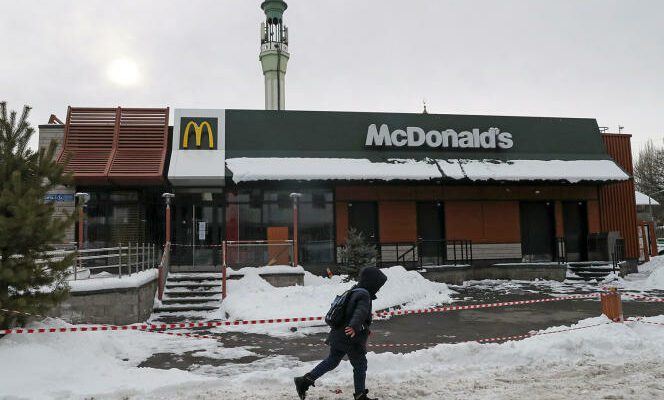This piece of sidewalk in Almaty, the economic capital of Kazakhstan, could use a good shovel. At the beginning of January, thirty centimeters of snow blocked access to a former McDonald’s. Since the closure of the chain’s 24 restaurants in the country on January 5, its lights have remained off. The giant sign on the roof was removed by workers the next day. It was a stormy morning, the thermometer showed -10°C. Residents then saw the yellow “M” in the back of a van which painfully left the city center under the snowflakes.
This unexpected departure is one of the many consequences of the war in Ukraine and Western sanctions against Moscow. In response to this offensive, the multinational severed all ties with its Russian suppliers and closed its restaurants in Russia in May 2022. In Kazakhstan, only hamburger buns were produced locally, all other ingredients came from Russia. Bringing in raw materials from Europe was deemed too expensive by McDonald’s. And Kazakhstan, which dreams of freeing itself economically from Moscow, has not found any other supply solutions.
Important meat producer
Maksut Baktibayev remembers jumping out of his chair when he heard the news. The president of the Meat Union in Kazakhstan regrets the departure of the chain, which employed 2,000 employees. “With six months of adaptation, our industry could have taken over the supply of meat”, he laments. President Kassym-Jomart Tokayev, who came to power in 2019 and re-elected in 2022 without real opposition, had declared that he wanted to make Kazakhstan a welcoming land for companies forced to leave the Russian market with the war in Ukraine. It won’t be this time.
“It doesn’t matter where the products come from, Kazakhstan, Russia or whatever, I just want to work. It’s not a dream job, but it’s better than unemployment. » A fast-food employee
With 550,000 tonnes of beef leaving its slaughterhouses in 2021, the former Soviet republic is nevertheless a major meat producer. But it lacks a processing plant that complies with international standards, respecting, for example, the criteria for fat saturation.
For eight years, the Italian group Cremonini has had plans to build one, but negotiations failed in 2016, 2019 and again in 2022. “The economy ministers who were handling the file were fired three times in a row, so, for lack of an interlocutor, Cremonini gave up, explains Maksut Baktibayev, who participated in the discussions. An Italian negotiator ended up telling me: “Your country is not ready.” It’s condescending, but, basically, he’s not wrong. »
You have 46.52% of this article left to read. The following is for subscribers only.
